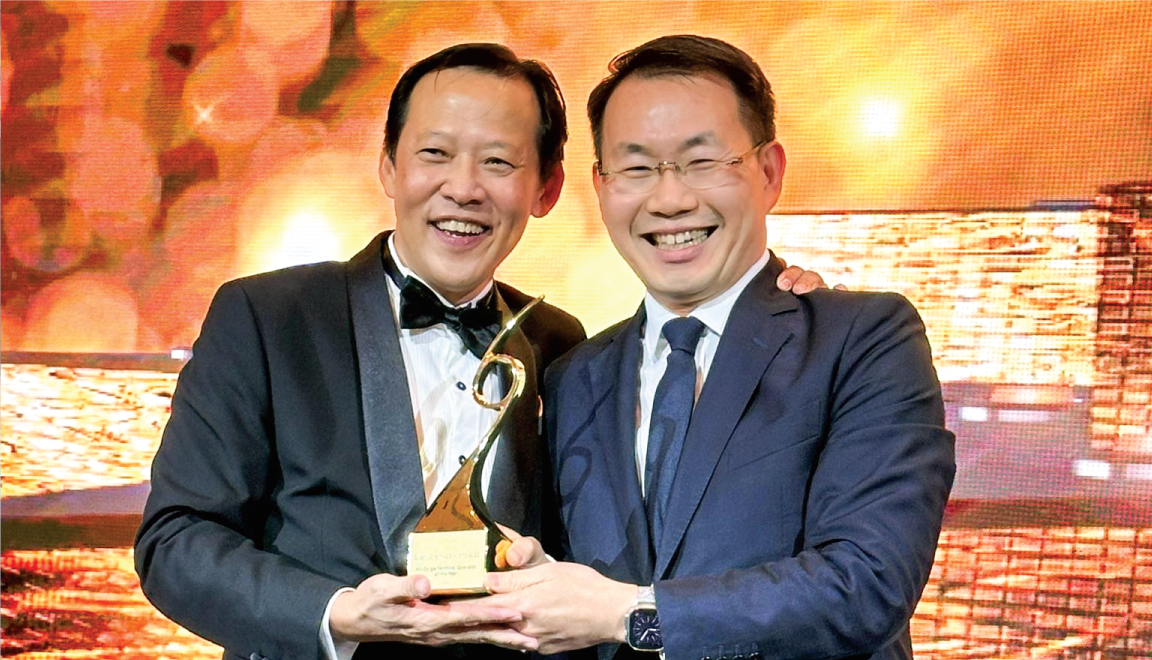Copyright © Hong Kong Air Cargo Industry Services Limited. All Rights Reserved.
Face to face with Guillaume Halleux
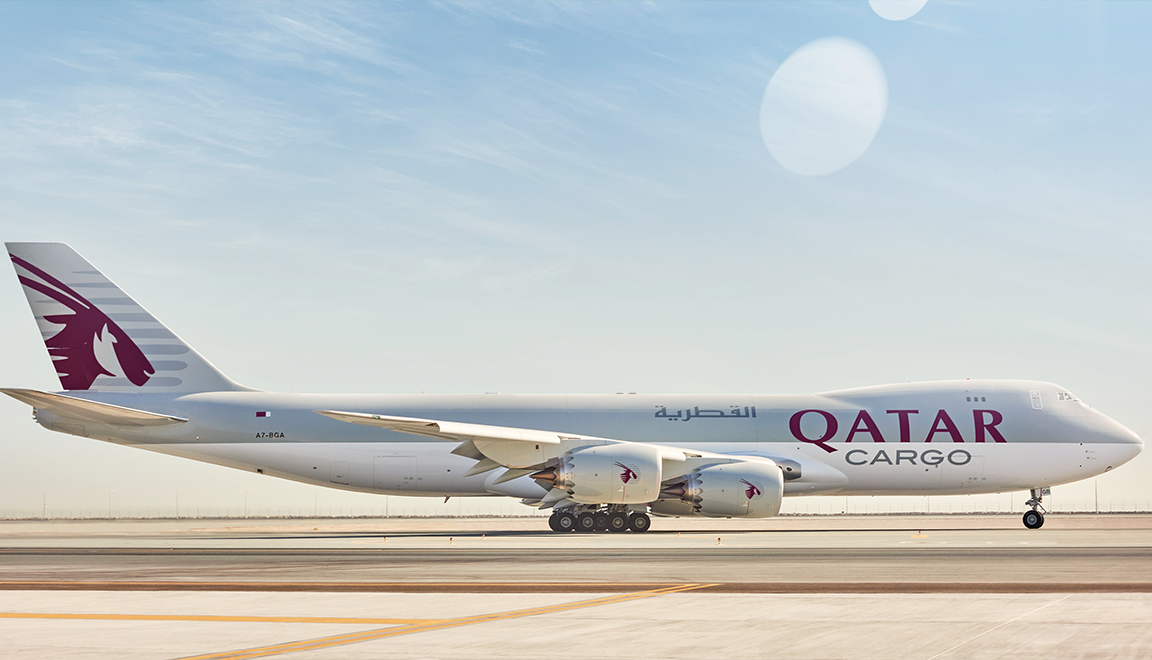
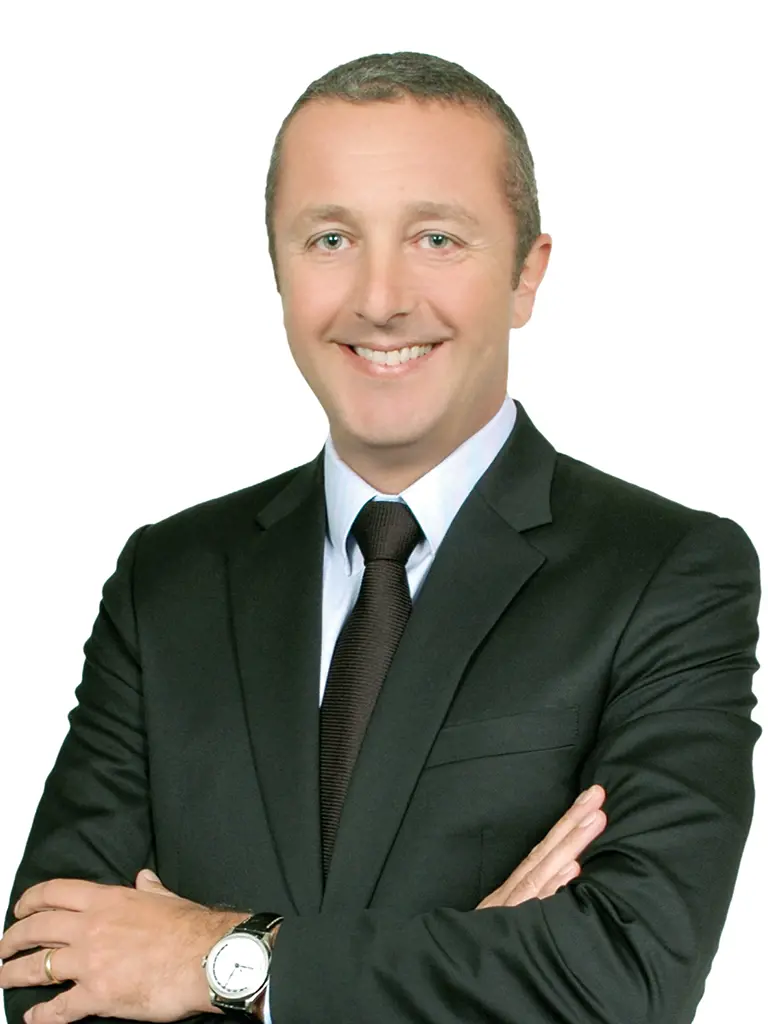
The new head of cargo at Qatar Airways (QR) has inherited a massive operation, and a major task. Filling the bellies of one of the industry’s largest and fastest-growing passenger fleets – 180 aircraft – is no mean feat in itself. And that’s without the airline’s 23 widebody freighters (a mix of A330, B777 and B747-8 aircraft), with more on order for imminent delivery. Those freighters provide Qatar Airways Cargo (QR Cargo) with as much capacity as all its passenger planes.
As you might expect, Doha (as capital of a country whose population is just 2.6 million) is not a major destination market in itself; only 15% of all QR cargo terminates there, while 85% is transhipped to any of the 160 onward destinations on the QR Cargo route map. But, with no production to speak of in Doha, this would still leave the passenger aircraft with around 15% shortfall in outbound cargo payload. The answer is the freighters, which bring additional cargo to Doha, and provide the extra outbound traffic.
The ongoing challenge of avoiding empty freighter legs due to imbalances in traffic regularly exercises Guillaume. Traffic to the USA, for example, is strong, while backhauls are weak and rates are accordingly low. To help combat such problems, “We already operate some fairly exotic rotations,” he says, and admits he is also thinking about round-the-world services as a longer term solution.
The much-reported current geo-political situation with Qatar’s neighbouring states may also have prompted some re-thinking of business plans and aircraft deployment, but it’s clearly not impacting the overall business – which grew by 19% in 2017 alone. And, declares Guillaume: “I have never seen load factors so high in 20 years in this business."
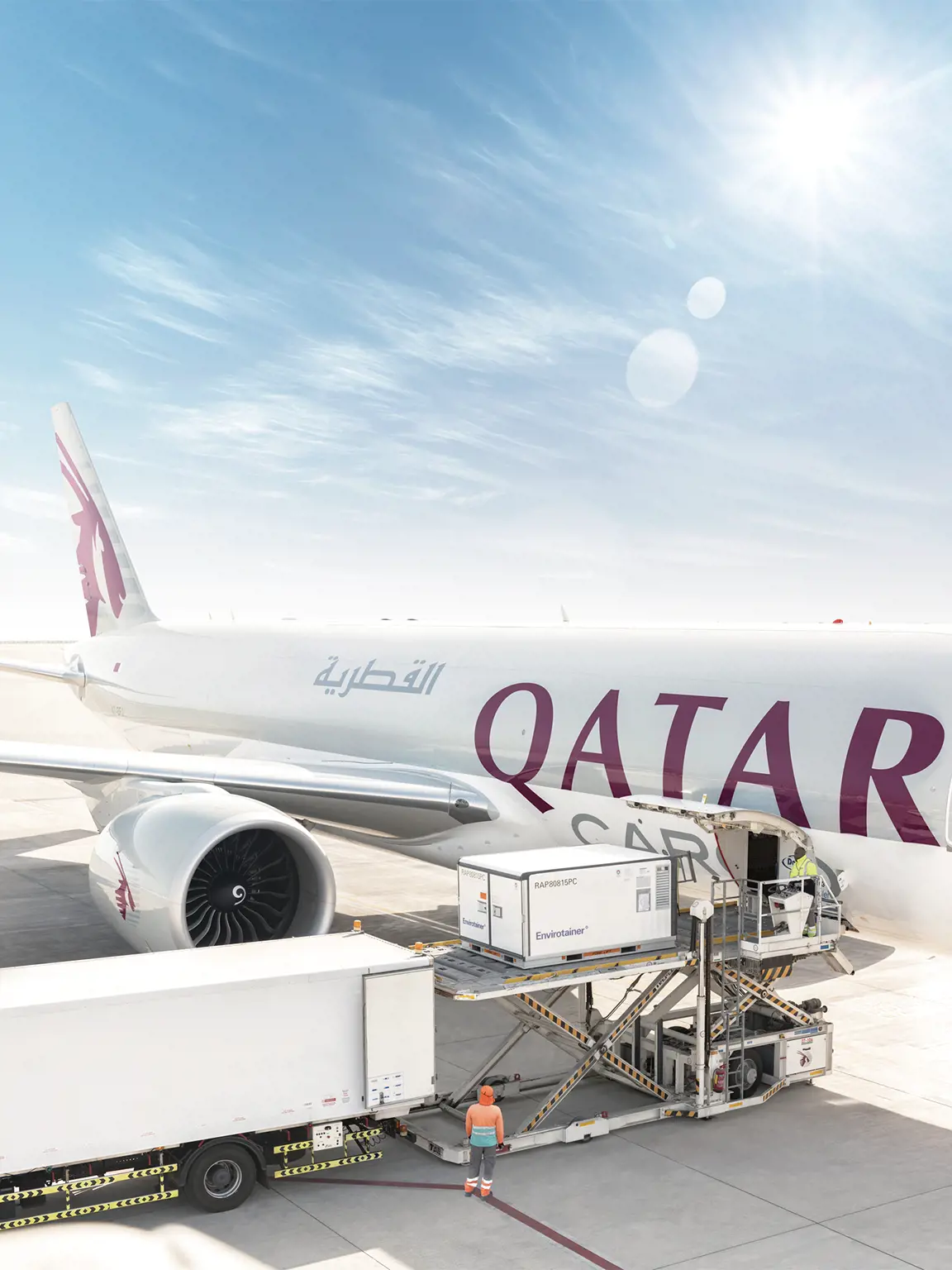
Pharma focus
It’s no surprise that pharma is high on Guillaume’s agenda, but the airline had already been planning its foray into this sector for some time before his arrival at head office last year. “We hired experts in this area two years ago, and have a team well-versed in the pharma business. They know the locations of the business, the processes and the regulations. And we then quickly realised we had to invest in equipment and processes at our hub.”
Of course, you could be forgiven for thinking that Doha, with daytime temperatures on the ramp often reaching 55°C, presents too great a challenge for a successful temperature-sensitive pharma transhipment operation; but that would be to ignore the can-do attitude that seems to permeate every area of the QR Cargo operation.
It led to the airline investing in a multi-million dollar Climate Control Centre with 2,470 sq m of storage in two zones (2°C-8°C and 15°C-25°C), and racking for Pharma focus 220 ULDs. The Centre has six truck docks with blow-up curtains that seal around docked trucks to maintain temperature integrity. There’s also an ante-room that maintains the constant set temperature within the zoned area, and can also be used as a staging area.
Meanwhile, out on the scorching-hot ramp, QR Cargo uniquely deploys 15 custom-built refrigerated roller-bed trucks, assuring temperature continuity during the journey either from aircraft to aircraft, or into storage. QR Cargo is GDP-accredited in Doha, and operates into 71 certified stations located in its major pharma markets; it is also regularly audited by major pharmaceutical shippers to ensure adherence to their standards. “If you want to play in the pharma business you have to invest, especially if you are in the Middle East, because of the weather. So that’s what we have done, and the results have been tremendous,” says Guillaume.
If you want to play in the pharma business you have to invest, especially if you are in the Middle East, because of the weather. So that’s what we have done, and the results have been tremendous.
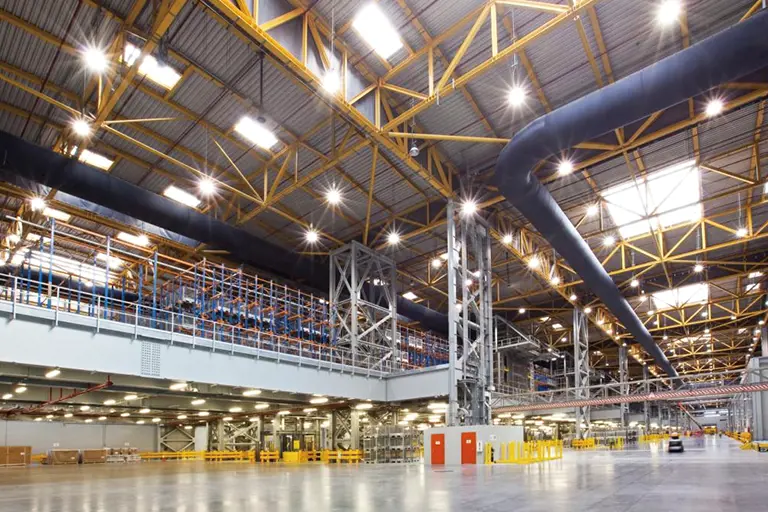
New express product woos e-commerce
Another, and equally unsurprising, focus for QR Cargo is e-commerce. This is slightly problematic in that the ever-more-diversified commodity range sold online makes it almost impossible to define the market or the sources of its traffic; Guillaume describes it as “blurry”. That said, QR Cargo has come to the realisation that this is a market dominated by mid-size local freight agents rather than the major multi-nationals (with a strong concentration in southeast Asia), whom it is now actively targeting.
To build on its success to date, the airline is also now working on a re-launch of its express product, which it considers will be a major attraction to shippers of e-commerce merchandise. This will be supported by additional investment at the hub to minimise transit times. Though Guillaume was guarded about exactly how the revamped product would look, he did reveal that it will incorporate priority and performance guarantees.
QR Cargo’s home, Doha, boasts the state-of-the-art Hamad International Airport, opened in 2014. The cargo terminal was part of that development, but is now performing a much larger task than the one it was designed for: “The cargo terminal had a design capacity of 1.4 million tonnes, but we have already exceeded that by far because we are growing much faster than we thought we would.”
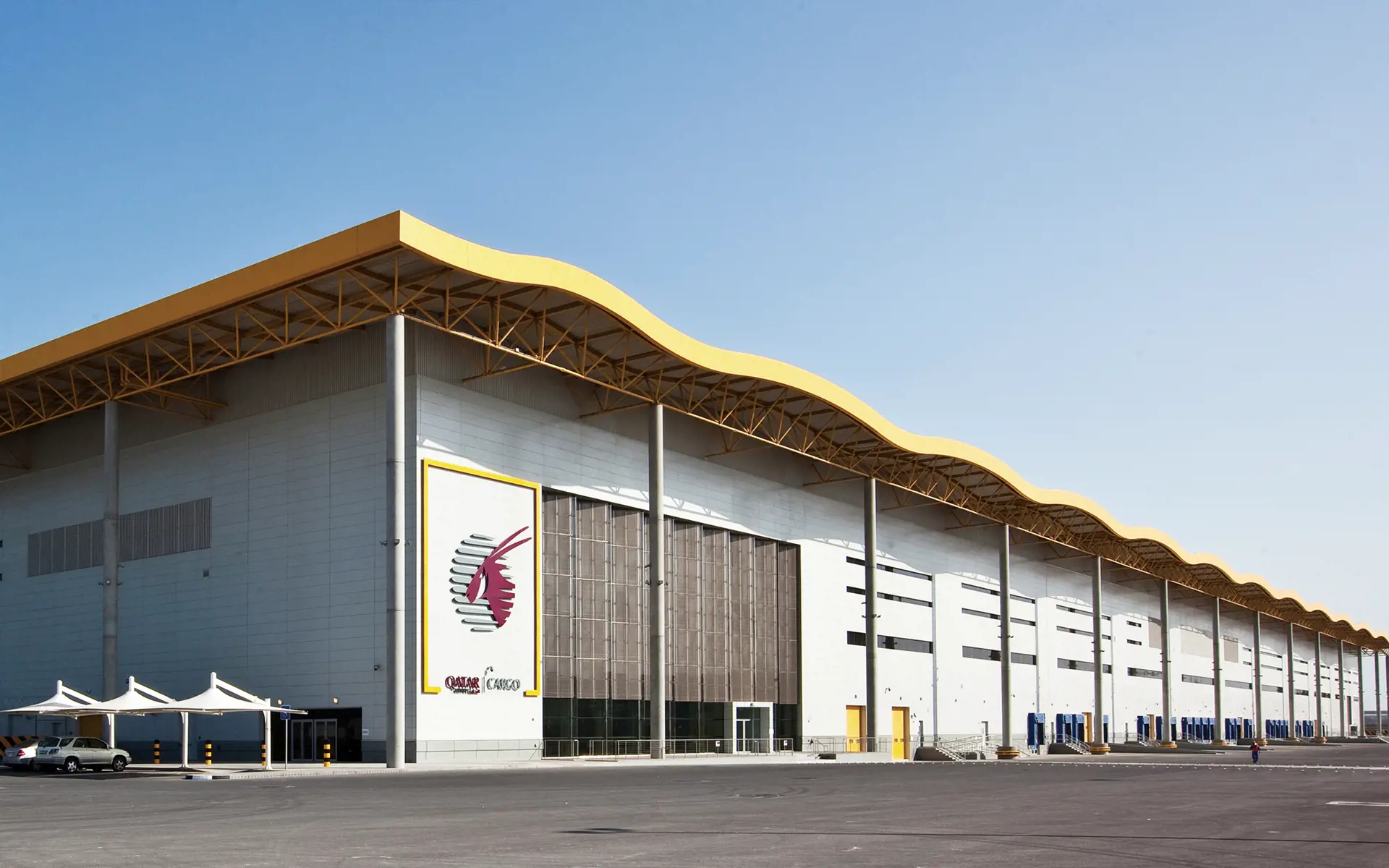
New terminal doubles capacity
The airline has managed to accommodate an increased throughput of 2.3 million tonnes, by investing in additional equipment and facilities. Although there is still room to grow in the current facility, Cargo Terminal 2 is now due to commence construction, increasing total capacity to 4.5 million tonnes, satisfying anticipated growth for the next 10-15 years.
The current terminal has to cope with a bewildering range of cargo, so the scope for full automation does not exist. However, the new double-deck terminal will be a rather more complex affair with a higher degree of automation. Already ranked at number three (and sometimes number two) in the world for cargo uplift, QR Cargo’s goal is to be the number one – not just in scale, but also in customer preference and profitability; the new Cargo Terminal 2 will support this ambition.
Mainland China is big business for QR Cargo: the airline operates 31 passenger widebody flights per week to 6 airports, with a further 7 freighters split between Guangzhou and Shanghai. “It is a very thorough strategy to grow in China as a whole. For any serious cargo carrier in the world, China has to be a focus,” says Guillaume.
And then, there’s Hong Kong. While QR operates an impressive 14 passenger flights weekly, its freighter operation is far larger with no less than 21 rotations per week. “We would love nothing more than to grow in Hong Kong, but we are restricted by slot availability. Like everyone else, we have no choice but to wait until construction of the third runway.” That said, QR has fared better than many, largely as a result of its pledge to the Government to operate only its newest and quietest aircraft. “It’s a strategy that has worked,” he adds.
Guillaume Halleux has certainly earned his spurs after 21 years’ air cargo service that began by accident with Air France Cargo in London, moving to head office and working through the merger with KLM, heading up a joint venture (SkyTeam Cargo USJV) between Air France Cargo, Delta Cargo and Korean Air Cargo on the US East Coast, and working in Hong Kong and southern China as Regional Director, during the period of merging the Martinair business which was a strong player in the market.
This was followed by 4 years with Bolloré (formerly SDV) as head of multi-modal sales and marketing first in Vietnam, then in Singapore; this provided Guillaume with the all-important customer’s eye view of the industry. Then, he moved to QR two years ago as Cargo Vice President Asia Pacific, also based in Singapore, and responsible for 15 countries. Finally, in October last year, he joined the airline’s senior management team in Doha, and took up his current post shortly afterwards.
As far as I am concerned, there is a level of professionalism in Hactl that I have never, ever seen elsewhere.
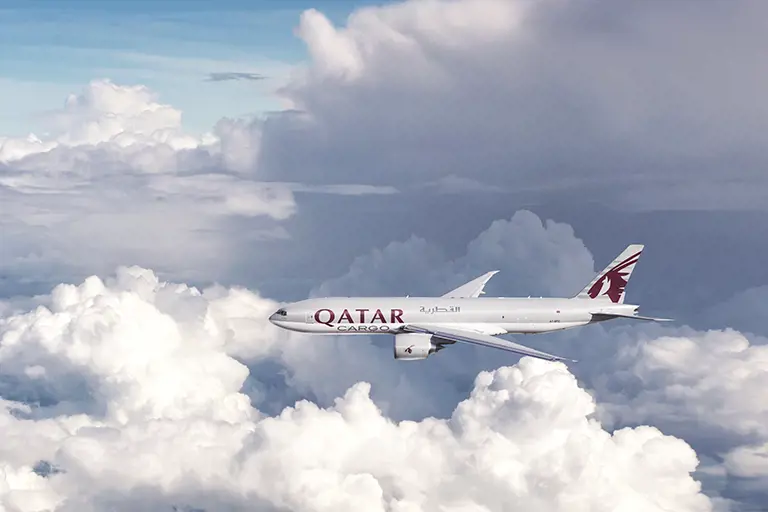
No stranger to Hactl
As a result of his spell in Hong Kong, Guillaume is no stranger to Hactl, which has the privilege of handling QR Cargo’s entire Hong Kong cargo business. As a customer of some years even before coming to QR, he speaks very highly of his handler: “Quantitatively, Hong Kong is in our top three stations,” continues Guillaume. “But qualitatively, Hong Kong is by far number one in the world.
“Number one in the world in terms of quality of service and flexibility, in terms of ease of doing business, in terms of our very strong relationship, and in terms of history. We have been very loyal to Hactl, and Hactl has been very loyal to us at all levels. As far as I am concerned, there is a level of professionalism in Hactl that I have never, ever seen elsewhere. How much of that is the company, and how much the city, I cannot answer. But Hong Kong is amazing in our industry; it’s absolutely unique.”
Guillaume is keen to explore the greater use of Hacis (the Hactl offshoot which provides road feeders between Hong Kong and the Pearl River Delta region), as a means of extending the market catchment for QR’s Hong Kong flights. “I have seen the added value of Hacis in a previous airline post,” he adds.
Decompressing
Despite many years away from his homeland, Guillaume has not lost touch with his culture or origins: when not playing sport, he is a keen cook who likes to unwind in the kitchen, preparing meals for his wife, Mayane, his 12-year-old son and 9-year-old daughter, who live with him in Doha. “When we are at home, we do not buy: we cook.”
And he has another passion that occupies his rare downtime - photography: “It’s a great way to decompress and de-stress.” Doha provides plentiful stimulating subject matter, including stunning sunsets and sunrises: “It’s a contrast of old and new, the light is absolutely beautiful and the sunrises are unequalled. At weekends, quite often I get up at 4:30 just to catch the sunrise!”
With the (often) monotone subject matter in Doha, Guillaume finds himself increasingly a practitioner of black and white photography, and also a fan. On his office wall hangs a black and white print by Yan Kallen, the photographer whom Hactl commissioned in 2017 to produce some stunning shots of its operations.
But Guillaume soon steers the discussion back to his great love: working for QR Cargo: “What drives me is the sense of accomplishment: every month looking at the numbers, and not recognising them because they are 20% higher than the year before. That gives you adrenalin and makes you forget how much work you have had to put in!”
“You cannot outpace the rest of the group without passion,” he asserts. “It’s passion that makes you go above and beyond. I am passionate about my industry, and that’s one of the reasons I have always been very close with the Hactl management team: I see their passion.”
You cannot outpace the rest of the group without passion.





